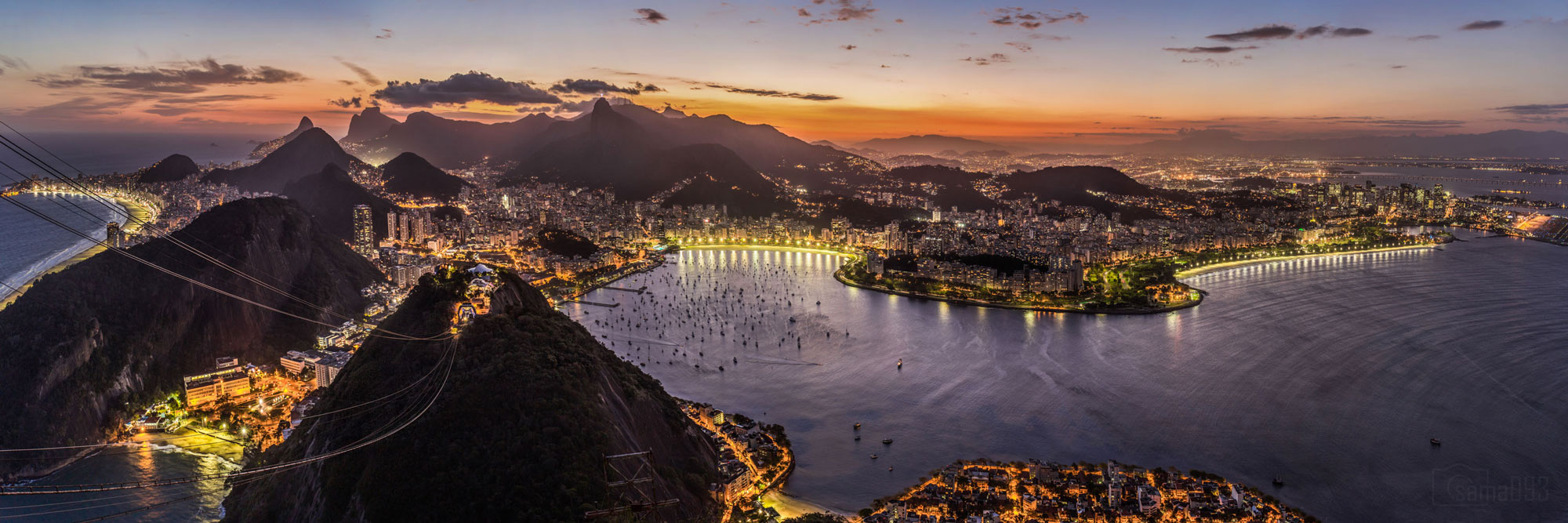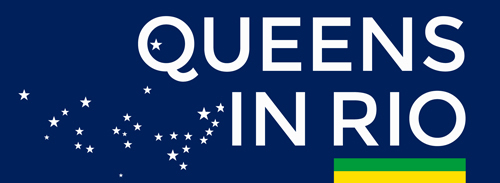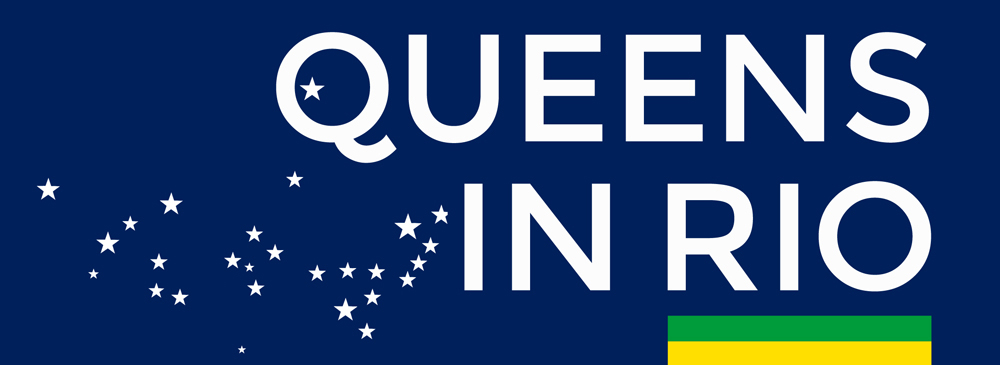Yellow lights in the center of this Rio nightscape indicate Botafogo Beach. Olympic sailing events take place in Guanabara Bay. Panorama shot from Sugarloaf Mountain by Flickr photographer sama093, used by permission.
How Do the Olympic Games Affect Rio de Janeiro?

IMPACT ON RIO
For 17 days in August, media are constructing, deconstructing, and reassembling new impressions of the city of Rio de Janeiro. In September, after three weeks of global media coverage of the Rio 2016 Olympic Games, residents who live in Rio may not recognize the new way their city is perceived by viewers in Beijing, Antwerp, or Omaha.
Most of the 40,000 members of the news media in Rio are focusing their stories on athletic competition, and coverage is available around the clock. The 19 students of Queens University of Charlotte, however, and six students from Mackenzie Presbyterian University in São Paulo, are aiming their lenses at the way a global sporting event affects the daily lives of residents — the cariocas of Rio de Janeiro.
Economic researchers have created extensive data on the short- and long-term impact of large-scale sporting events on cities, including the World Cup and the Olympic Games. These undergraduate students lack the time and resources to contribute to this research. They can, however, create small glimpses into the extremely short-term impact of the event on families, taxi drivers, small businesses, and other human beings.
STORY CONCEPTS
In three class sessions of a semester-long course focused on media and the Olympic movement, Queens students developed 65 potential story ideas on Rio de Janeiro in an Olympic context. These are some of the stories that students want to do:
- Games Impact on Rio, including their effect on hotels, small businesses, emergency crew responders, families, street vendors, artists, taxi drivers, and coffee and juice bars
- Local Olympic Culture, including the outdoor broadcast viewing habits of cariocas, volunteers, pin collectors, and the families of athletes
- Charlotte Connections, including Brazilian expatriate samba dancers, capoeira practitioners, and Olympic athletes who practice in Charlotte
- Cultural Comparisons with people who resemble themselves – individuals between the ages of 18 and 25 – including behavior in relationships and tastes in music, food, clothes, smartphone apps, and beaches
WHAT STUDENTS ARE DOING
After studying the Olympic movement and multimedia production in a 14-week spring semester, Queens students are preparing story packages that include 2-minute videos, 500-word textual stories, and still photography. Students work in three-person teams that include a producer, videographer, and creative director, and they are supported by Portuguese-speaking, Brazilian field producers – all students from Mackenzie Presbyterian University in São Paulo. The 25-student group is in Rio de Janeiro for the two key weeks of the Olympic Games, between Saturday, Aug. 6 and Saturday, Aug. 20. Their work schedule is divided into three-day units: pre-production and research; field production; and post-production and story distribution.
Students from Queens and Mackenzie have taken over an entire Rio hostel as their headquarters.
Olympic competition venues are placed in four zones — Copacabana, Barra, Deodoro, and Maracanã.
- Copacabana, in the east. Venues in Copacabana include sailing, rowing, canoeing, beach volleyball, road cycling, and triathlon.
- Barra, in the west, hosts the Olympic Village and media centers, and 23 competitions including most swimming and diving, judo, wrestling, fencing, tennis, and cycling.
- Deodoro, in the north, hosts mountain biking, whitewater events, shooting, equestrian, field hockey, rugby sevens, and modern pentathlon.
- Maracanã in the northeast hosts volleyball and track and field venues, and the Maracanã stadium for opening and closing ceremonies, and soccer finals.

